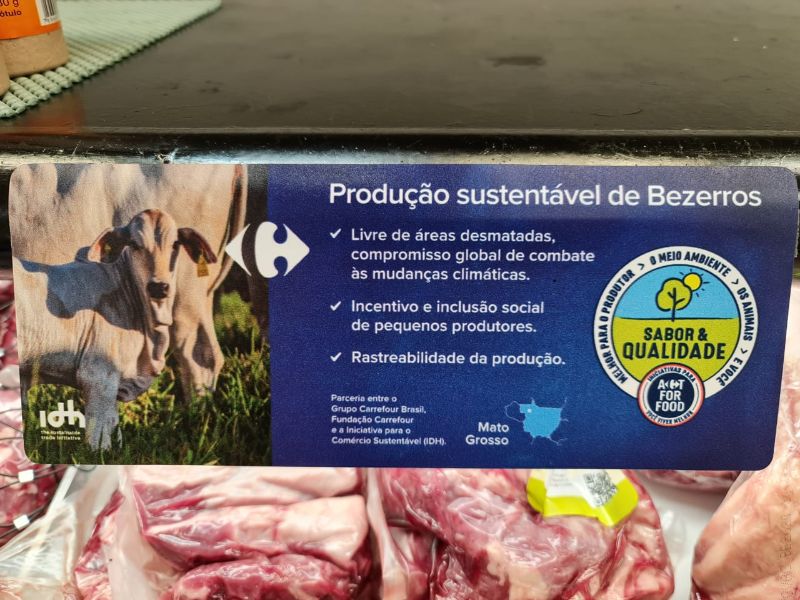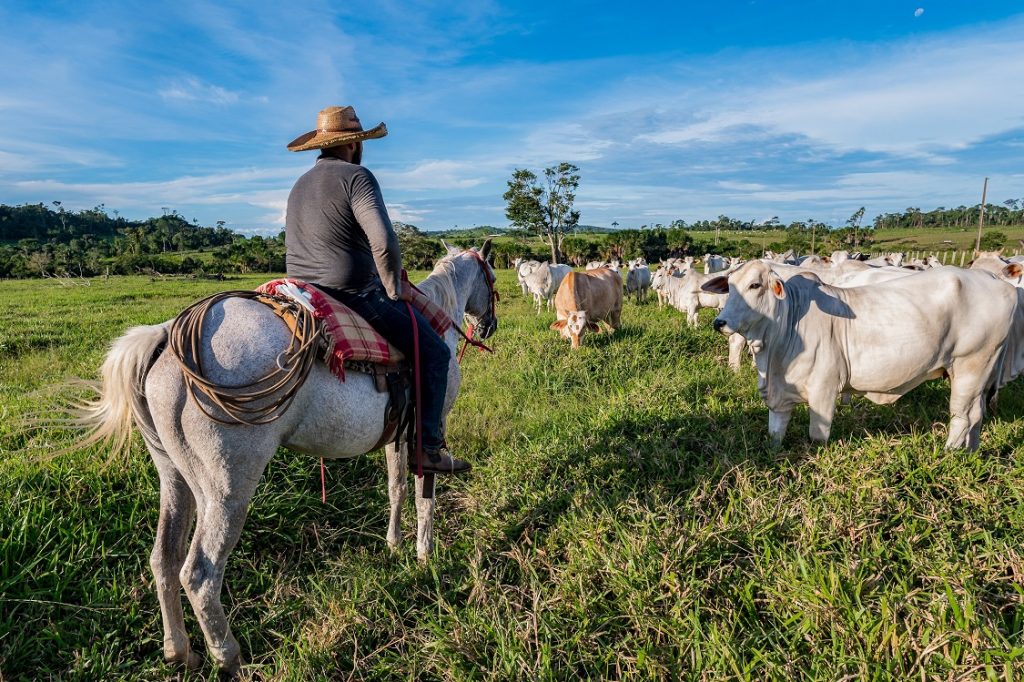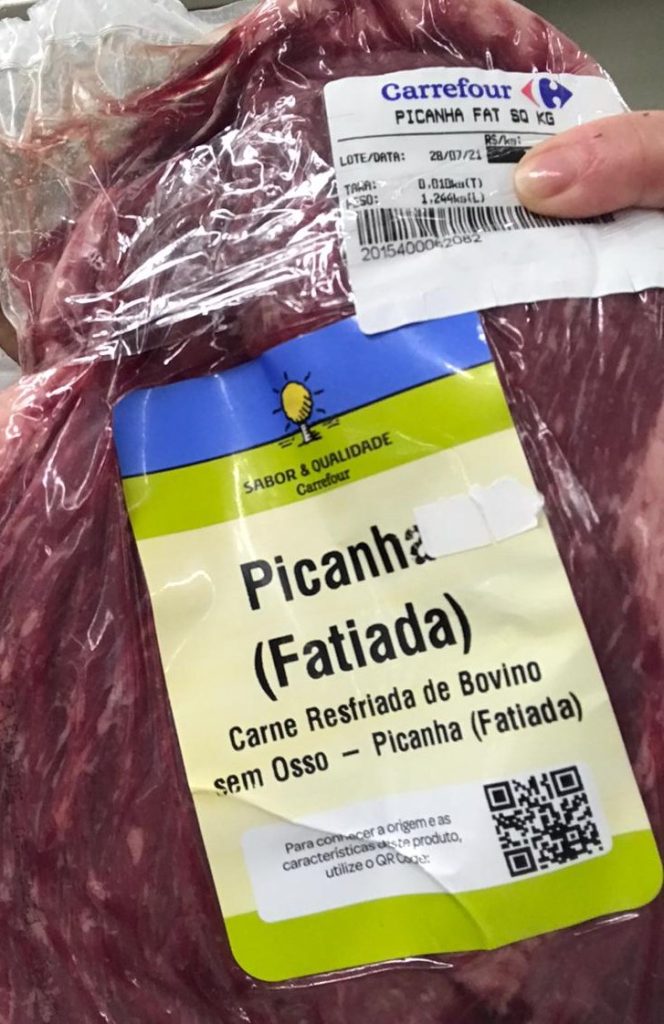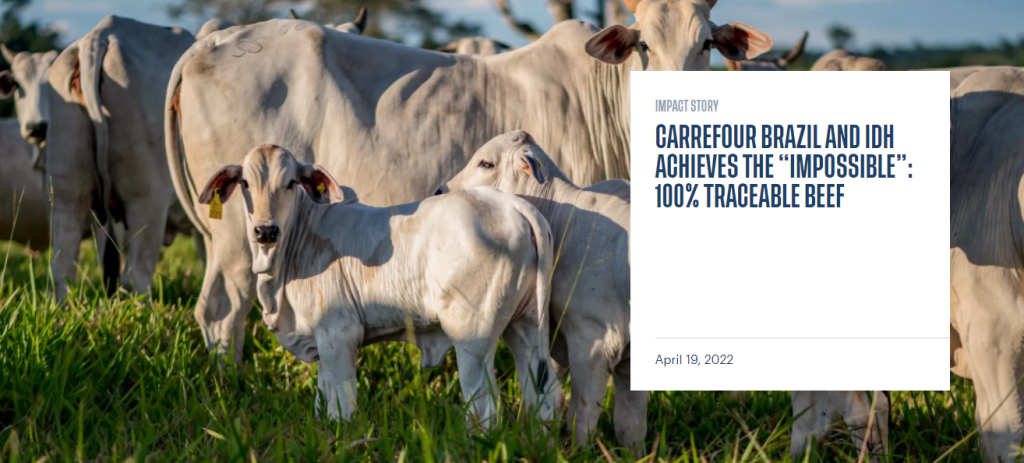This impact story was originally published on SourceUp.
As illegal deforestation has been linked to untraceable cattle farmers, this breakthrough could change the game for forest protection in Brazil
The Carrefour Group Brazil, the Carrefour Foundation and IDH – The Sustainable Trade Initiative (IDH) announced today (29) that the first batch of 100% deforestation-free beef traced from birth to shelf is now available in Brazil at an affordable price. Consumers will be able to access information through a QR Code stamped on the product’s label.

Cattle from indirect suppliers are traceable
The announcement is groundbreaking for the Brazilian beef industry, because the supply chain is so complex. When slaughterhouses buy mature cows as part of the traditional supply chain, their origins are no longer traceable. The increased traceability makes it possible to conform to and exceed the requirements of the national Forest Code.
With the Sustainable Production of Calves program, each calf is ear-tagged, and a sophisticated record is kept on each animal in a system, including information on the parents, date and place of birth, as well as all the transfers between farms during the animal’s life.
By the end of the project, 450 farmers will be supported, it will involve over 135,000 cattle and protect or restore over 160,000 ha. of land, in two different regions of the Mato Grosso state.

Beef sourced with environmental commitments beyond the Forest Code
Part of the program is developed in Mato Grosso’s Juruena Valley in the Amazon biome, where around 35% of the state’s calves are produced, and which supplies a large part of the beef chain.
“This is a scalable solution for territorial development that benefits farmers, the environment, and offers consumers more sustainable beef at market price. This breaks the paradigm that sustainable products have to be expensive, and also triggers a new discussion in the beef chain”, says Daniela Mariuzzo, IDH Brazil Executive Director & Latam Landscapes Program Director.
“The Carrefour Group Brazil has supported the calf program for three years, for it believes in its potential for socio-environmental transformation, economically including small farmers and helping them to preserve and recover biomes,” says Lucio Vicente, director of Corporate Affairs and Sustainability at the Carrefour Group Brazil. “This second phase of the project is an unprecedented advance and a reason for celebration for us, seeing that one of our priorities in the fight against climate change is to continuously monitor the livestock chain, aiming at the improvement of procedures by suppliers while ensuring monitoring and reliability in the purchase of cattle, and delivering to consumers beef produced in non-deforested areas.”
Looking ahead to inspire change in Brazil’s entire livestock chain
The Carrefour Group Brazil and IDH are already preparing the next stage of the Program, which will be the launch of a national protocol, third-party audit, with procedures and processes focused on the guarantee of social and environmental origin from the birth of the calf.
The Calves program supports the government of Mato Grosso’s ambitious green growth strategy, Produce, Conserve and Include (PCI). This strategy was announced at the UN Paris Climate Conference in 2015, to increase agricultural production and efficiency; conserve remaining natural vegetation; and improve the inclusion of smallholder farmers and local communities by 2030.

This impact story is related to the Juruena Valley sourcing area in Mato Grosso, Brazil.
